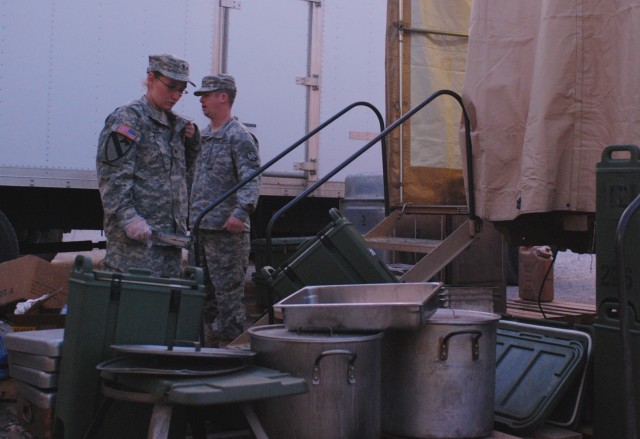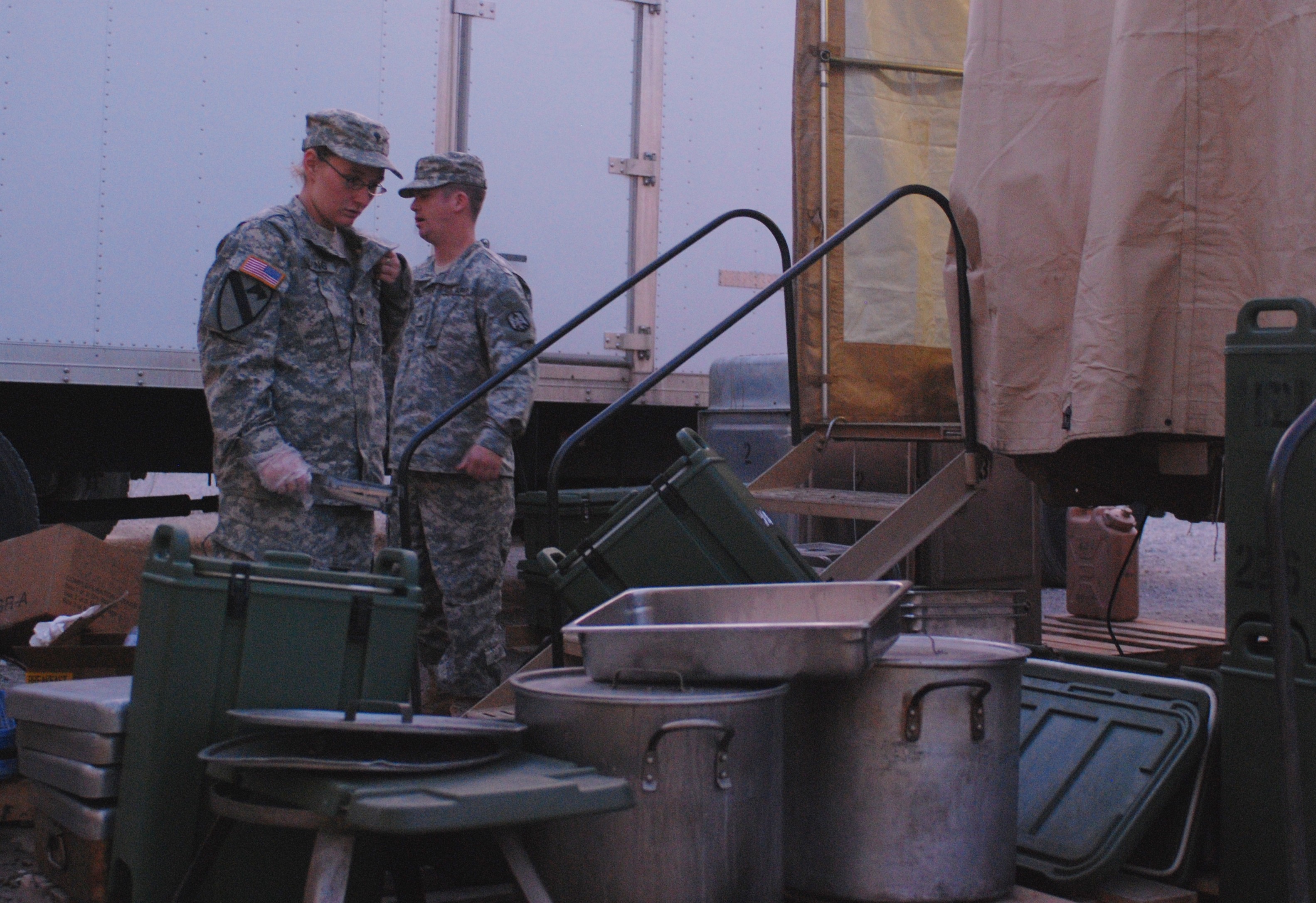
FORT SILL, Okla. - Most Soldiers observe a workday that lasts from first formation to last formation, which can range anywhere from eight to 10 hours. Often, in service to their country, Soldiers will work beyond duty hours to accomplish their missions. In consolation, the schedule contains long weekends designed to give Soldiers some much-needed down time.
There are other Soldiers, however, that rarely receive these compensations and whose workdays are even longer. They receive no extra pay or comp time. In fact, they are regularly criticized for their efforts by the very people whom they - quite literally - serve.
As cooks in the U.S. Army, the days are long, hot, exhausting, and often thankless due to a menu and a set of recipes over which they have very little control, said Sgt. Brent E. Thomas, a food service specialist with Headquarters, Headquarters Company, 168th Brigade Support Battalion.
"We work 12 or 13 hours a day, and that's just at the dining facility. That's not counting unit tasks," said Sgt. Nadja Merchant, a food service specialist also with HHC, 168th BSB.
In an occupational specialty that usually only allows Soldiers to have two weekends off per month, the hours pile up, said Sergeant 1st Class Edward Colon, a food service specialist with Headquarters, Headquarters Battery, 214th Fires Brigade, and a former dining facility manager.
In addition to the demanding schedule, food service specialists must also observe a demanding set of regulations. Some scenarios require highly specialized personnel who have obtained multiple certifications, Colon continued.
"It's not just all about cooking, now. That's what everybody thinks. To work in the hospital, for example, you need to have a trained nutritionist if you're serving food to patients. It's almost an entirely different [occupation]," he said.
The difficulty of finding an occupation and the allure of someday running his own kitchen are what drew Pvt. Joshua Whaley to the Army recruiting office in his home state of Michigan. As a food service specialist with HHC, 168th BSB, Whaley hopes to learn valuable skills to help him achieve his goals, and thinks he may be on the right track.
"So far, so good," he said.
Every skill Whaley learns may be necessary to succeed because, as an occupation, running a kitchen is difficult, said Colon.
However, in the Army, the real challenge lies in leadership, said Sgt. James Silveira, a food service specialist with HHC, 168th BSB, who has 12 years of military service.
"NCOs have to work twice as hard to keep Soldiers motivated because a lot of the benefits and rewards other NCOs have aren't available to DFAC NCOs," Silveira said.
"That's why I think the DFAC produces top-notch NCOs," he added.
In the long run, the leadership skills they learn may be the most valuable assets to young Soldiers in the kitchen, said Thomas.
"The most important part of leadership is sharing those things you've learned ... to develop and lead [Soldiers]," remarked Thomas.
If enduring the difficulty of the food service mission builds better leaders and Soldiers, it all works to the benefit of the Army and those who eat in the dining facility, said Merchant.
Because of the demands of a food service environment, there is a high attrition rate among its Soldiers, Merchant said, who believes that the Army core value of selfless service is the deciding factor in who can hack it, and who cannot.
"We are only here for the Soldiers. There are no other perks," she concluded.

Social Sharing